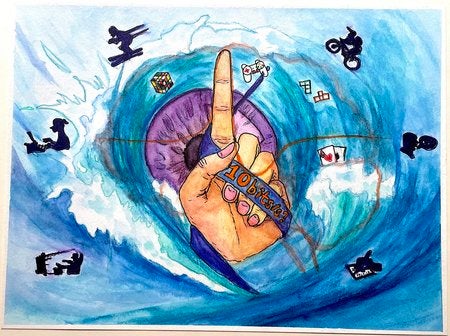The human brain processes thoughts 5,000,000 times slower than the average internet connection
Share:
People think many millions of times slower than the average internet connection, scientists have found. The body’s sensory systems, including the eyes, ears, skin, and nose, gather data about our environments at a rate of a billion bits per second.
![[A picture show the neurons working in a human brain]](https://metro.co.uk/wp-content/uploads/2024/12/SEI_234347271-556b.jpg?quality=90&strip=all&w=646)
But the brain processes these signals at only about 10 bits per second, millions of times slower than the inputs, according to author Markus Meister. A bit is the unit of information in computing. A typical Wi-Fi connection processes about 50 million bits per second.
![[Apps With More Than One Million Users]](https://metro.co.uk/wp-content/uploads/2023/10/GettyImages-1632181964-e1700130460337.jpg?quality=90&strip=all&w=594)
Despite the brain having over 85 billion neurons, researchers found that humans think at around 10 bits per second – a number they called ‘extremely low’. Writing in the scientific journal Neuron, research co-author Markus Meister said: ‘Every moment, we are extracting just 10 bits from the trillion that our senses are taking in and using those 10 to perceive the world around us and make decisions.
‘This raises a paradox: What is the brain doing to filter all this information?’. Individual nerve cells in the brain are capable of transmitting over 10 bits per second. However, the new findings suggest they don’t help process thoughts at such high speeds.
This makes humans relatively slow thinkers, who are unable to process many thoughts in parallel, the research suggests. This prevents scenarios like a chess player being able to envision a set of future moves and only lets people explore one possible sequence at a time rather than several at once.






















